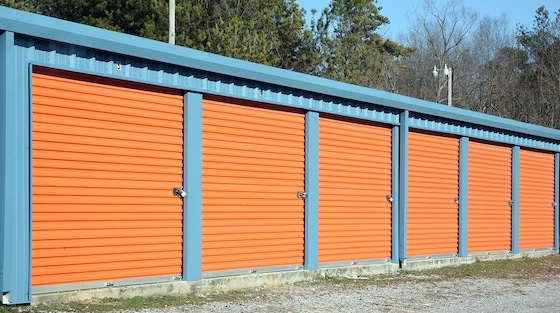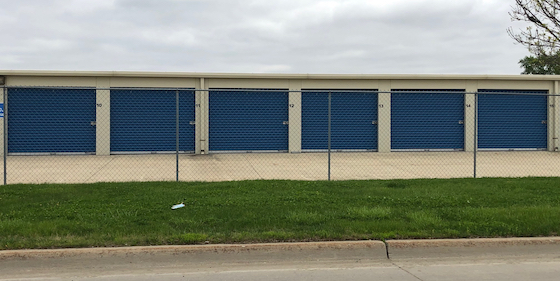Flooding has been a major news story of this summer, and hurricane season is approaching. This should bring up the topic of checking to see if your storage facility is properly insured. Indeed, insurance is the magic formula that allows self-storage owners to sleep well at night, knowing that their interests are well protected. It’s always a good idea to periodically check with your agent and make sure that you have the correct limits on liability and the correct dollar value on replacement costs for your structures. Remember that storage owners sometimes get spoiled because there are no residents living in the units and fire is such a rarity since there are no furnaces or kitchens to catch fire, but don’t let this lack of concern spill over onto your true liability picture. All storage owners face the potential of slip and fall liability, as well as employee practices, and fundamental risks of weather. So take time this summer to re-check that your insurance is in order. You’ll be glad you did.
Memo From Frank & Dave
What Are The Implications Of The Birmingham Moratorium On New Self-Storage Construction?

Birmingham, Alabama recently passed an unusual moratorium on new self-storage construction . There are several issues that Birmingham is mad about, and there is a growing issue on these same fronts in a number of other markets. So what’s going on and what is the potential impact to self-storage investing?
Cities are alarmed at the amount of new storage construction
There has been a massive amount of building in some markets, and this bothers city government as they feel it will lead to some type of correction and also does not give the city the “look” it desires, which seldom revolves around short buildings with roll-up doors.
Cities want uses that are more inclusive of other development
Self-storage is kind of a loner product type. Cities prefer developments that spur or support other new building. For example, if you build a theater, it promotes a shopping center, which creates demand for more apartments, etc. The entire concept of “mixed use development” is extremely important to city growth and every property that is built as storage removes one more piece from that puzzle.
Cities want uses that create more tax dollars
Storage has never been a very profitable real estate use for city government. The value of the structure is not high and there’s no sales tax benefit. Although it’s true that storage properties use little in city resources (no kids to educate for example) the same is true with retail and office and these bring in much more money to the city coffers. If someone built a restaurant on that storage site, for example, the city would receive not only property tax but also sales tax revenue, and have virtually zero cost from the development. The bottom line is that cities are starving for income and storage development is not getting them what they want.
What the potential impact is
It is possible that more cities will jump on the bandwagon, and the days of wide-open storage development may be over. But is that really bad? We think that having greater city restrictions will simply be a service to the industry to help moderate new construction and guard against overbuilding (as discussed in an article below). It would actually improve the value of all existing storage properties as it will restrict potential supply to some degree.
Conclusion
Many cities are starting to question the widespread development of storage properties in their boundaries and if this is a good thing. Some are passing temporary moratoriums to study the issue. This is not necessarily bad for the storage industry, although it’s definitely not a new story that anyone anticipated.
Self Storage Home Study Course
Our Home Study Course is not like anything you have ever listened to or read before. We do not fill it with a bunch of fluff on how your are going to make a million bucks with no money down. We tell you the whole story... the good, the bad, and the sometimes ugly.
Click Here for more information.
Insider Secrets Of Self-Storage Debt

Getting a loan on a self-storage property has never been easier. The success in prudent lending and operations has given self-storage among the lowest default rates of any type of real estate sector. That being said, there are some tricks to financing self-storage properties that you should know.
All banks really do non-recourse – if you ask properly
Most banks (not including conduit and agency debt) will tell you that they only do “recourse lending” which is not entirely true. Recourse debt is when, upon default and a loss on the loan, the bank can come after your personally for the deficiency. And this is never favored by a borrower. So when the bank tells you they only do “recourse debt” ask them if they would do non-recourse lending if you put 50% down. They’ll say “sure”. Then you say “well then we’ve established the fact that the bank actually does non-recourse lending, so then what is the minimum amount I have to put down to trigger the non-recourse option?” In many banks, that’s about 30% to 40% down, which may be exactly what you want to do if you hate the idea of recourse debt.
Seller financing is the best type of debt
Want to know the best type of bank debt for a self-storage property? It’s not bank debt at all, but rather “seller financing” – where the property seller carries the mortgage for you. Not only is it fast and easy (no bank committee or third-party reports) but it also gives you confidence that the seller is not committing any type of fraud in the sale, as only an idiot would lie about a property and then carry the debt. All buyers love this type of structure over all others.
Conduit debt has a secret flaw: defeasance
Many storage buyers like the type of debt known as CMBS (commercial mortgage backed securities) which is also known as “conduit” debt. This type of loan is non-recourse and has low fixed interest rates. However, it also has a fundamental flaw called “defeasance”. This is a penalty you pay for early payoff of the loan. In some cases, the penalty can be 30% of the loan amount. Be sure you understand this issue before you borrow on a conduit loan basis.
When you have a problem, go to the bank early on and with a plan to solve the issue
Although most storage loans go just fine, if you have a giant problem go to your lender early on rather than later and let them know what has happened and that you may need help in making the payments for a while. For example, if there’s a flood and your facility has damage, you should tell the lender and let them know that it may cause you to be short on mortgage payments for a period of time. Good lenders will work with you to fix the problem, possibly by abating payments for a period or reducing them. But if you don’t tell anyone and let the problem fester and then miss your mortgage payment, you may cause the bank to foreclose and it will be embarrassing for everyone.
Conclusion
Obtaining debt is an essential part of any self-storage investment. But you also need to be a smart borrower and know the tricks. This list will help you be a step ahead.
If You’re Looking At Storage Deals Over $2 Million, Then Have A Professional Work With You To Obtain The Best Loan Possible
M.J. Vukovich is a capital consultant for self-storage loans. And he’s one of the best in the business. We’ve been using him for years and are firm believers that having a professional obtain and negotiate your loan is the best way to go in today’s lending environment. Here’s what a capital consultant can do for you:
- Create your loan package.
- Create the list of potential lenders based on current appetite for these type of loans.
- Meet with these lenders and obtain offers.
- Give you an array of offers and point you in the direction of the best one.
- Negotiate the terms for you.
- Shepherd the loan to completion.
All of this costs a small percentage of the loan amount and is only paid upon performance.
Call M.J. for a free consultation and discuss your lending needs and options with him at (720) 758-9227 or email him at [email protected]. You’ll be glad you did.
Which Markets Are Potentially Overbuilt In The U.S. For Self-Storage?

A recent report highlighted markets in the U.S. that are potentially overbuilt as far as self-storage is concerned. What are these markets?
- Houston
- Dallas
- San Antonio
- Austin
- Miami
- Denver
- North Carolina
- South Carolina
- Denver
- Portland
- Atlanta
The root cause is believed to be over-building as opposed to waning demand. But the impact is the same as the supply/demand relationship is not healthy and this causes lower rents and greater vacancy. The report urges caution in these markets and for buyers to stick with the better quality properties with strong fundamentals. You can read the complete report at https://www.bisnow.com/national/news/self-storage/self-storage-inventory-boom-rising-value-concerns-96269?utm_source=CopyShare&utm_medium=Browser
Important Tips On Mystery Shopping Your Manager

The most important fixture in any self-storage property is the manager. They are the quarterback of your investment, and their performance can make or break you. As a result, you cannot let them function in the absence of constant scrutiny. So how can you stay on top of your manager’s performance?
Have all in-coming sales calls recorded
Step one is to have a complete handle on your phone line. Since most customer call first before they come by, it’s essential that you have visibility on their phone habits and skills. You can port your property’s phone number through a group like Who’s Calling and they will automatically record all calls and even track all incoming phone numbers. You can also tell how many calls are being missed. The days of relying on your manager to answer the phone and do so properly are over – now you can trust but verify.
Exit interview customers
You have the phone numbers automatically thanks to the above service. So why not periodically call some of the numbers and do an exit interview. See why they either rented a unit from you, or why they did not. Get their honest assessment of your manager and their performance on the sale. There is no better source of accurate information than your customers.
Pay someone to pretend to be a customer
You can go on Craigslist and hire someone to go mystery shop your storage facility for maybe $50. This is extremely valuable information for you and well worth the money. What will you think when you find out the manager was drunk or that they did a terrible job? That $50 will be the best money ever spent, and allow you to change managers quickly before they do further damage to your business.
Drop by yourself unannounced
Better yet – if you live nearby – drop by your facility unannounced and see for yourself what’s going on. Is it mowed? Is it clean? Is the office even open? Some owners deliberately show up at 4:45 when the office closes at 5 PM, just to see what happens. Once the manager knows that you may show up at any moment, they naturally will do a better job.
Conclusion
President Ronald Reagan once said “trust but verify” and that’s as true today as it was in the 1980s. It’s a theme that all mobile home park owners need to adopt. It can mean the difference between missing or hitting your budget and goals.
Brought To You By SelfStoragesUniversity.com
If you need more information please call us (855) 879-2738 or Email [email protected]
